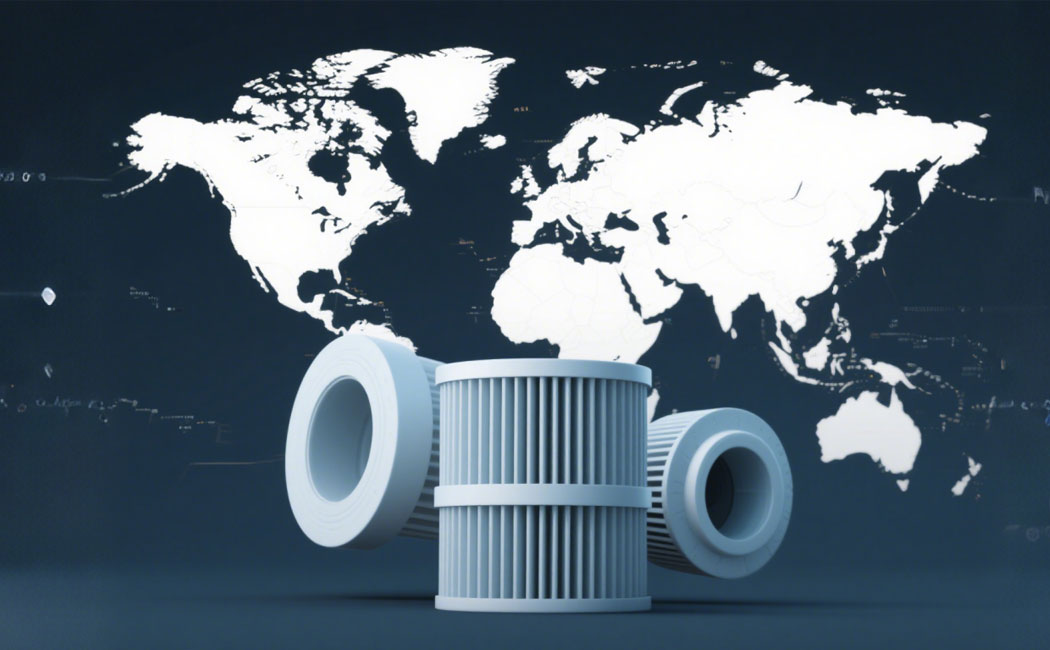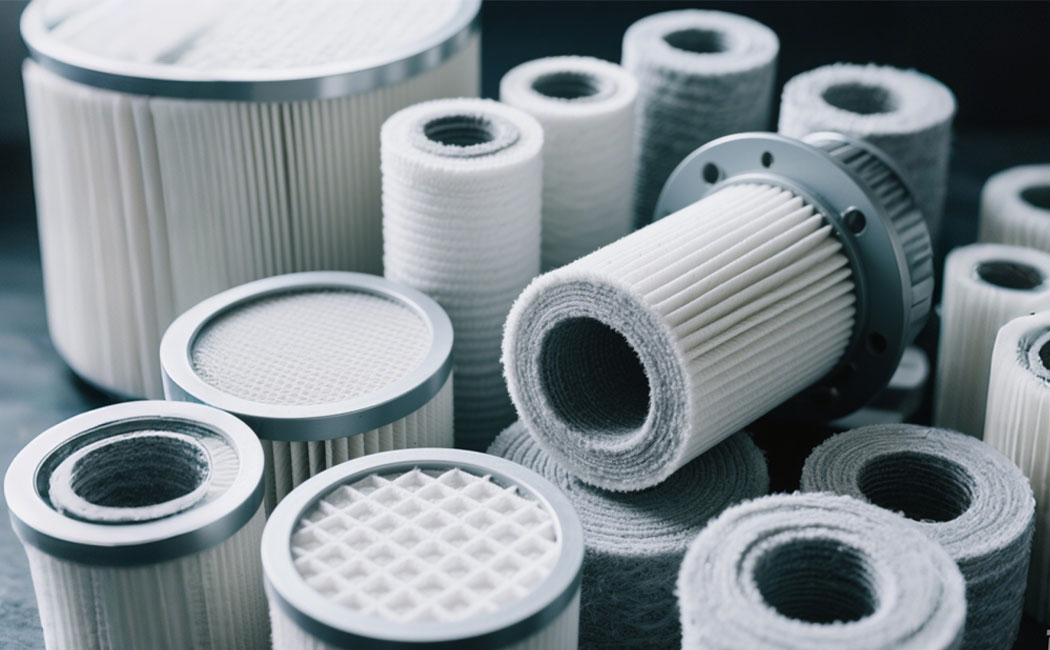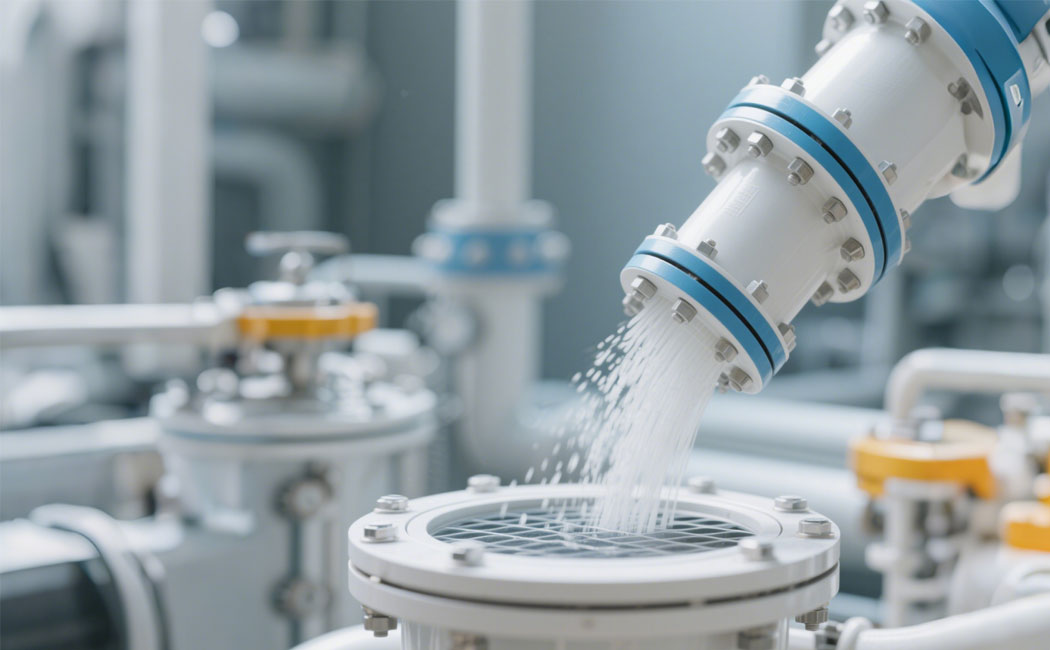What is a Melt Filter Shrinking Machine and Why is it Essential for Filter Manufacturing?
In the field of precision industrial filtration, the performance of the final product depends on the integrity of its smallest components. For manufacturers of melt-blown filter elements and other key filter elements, it is a fundamental challenge to realize the perfect and permanent sealing of the end cover. So how can manufacturers ensure consistency, speed and reliability in this key step? The answer lies in a specialized piece of filter machinery: the Melt Filter Shrinking Machine. This paper discusses this important filter equipment in depth, explaining its operation, unique advantages, technical specifications and main applications, so that people can clearly understand its role in a modern production line.
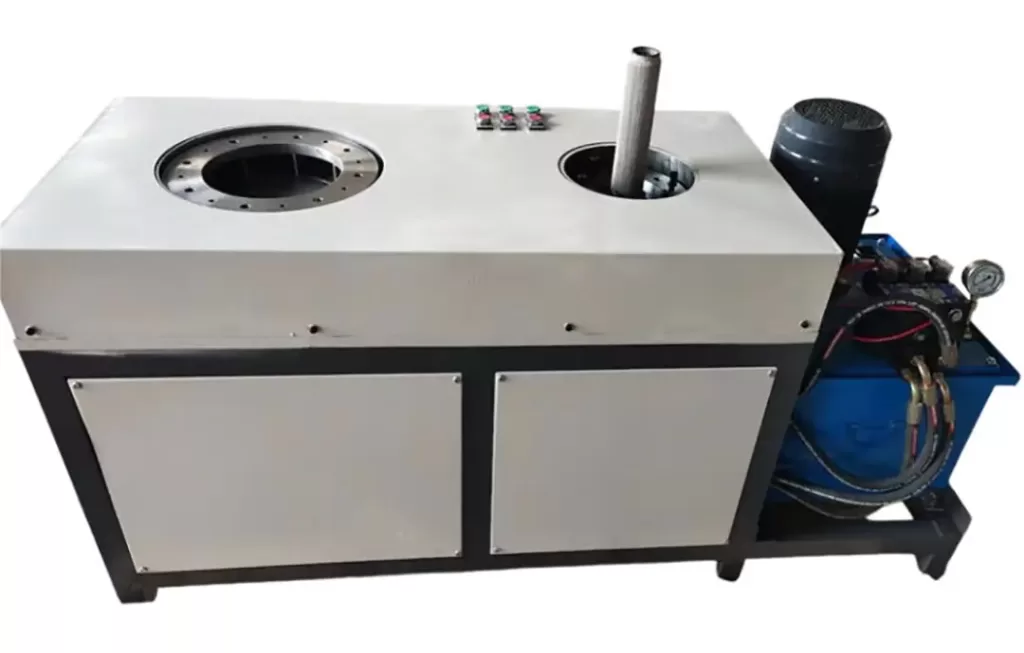
What is a melt filter shrinking machine?
A Melt Filter Shrinking Machine, also known as a filter element necking machine, is a purpose-built piece of filter equipment designed to process the open end of a filter housing. The process consists of three steps:
1. Precise heating: This machine uses controlled heating elements to soften the mouth (or neck) of the polymer-based filter container and make it flexible.
2. Radial compression: Once the material reaches the optimum temperature, a calibration force driven by a hydraulic or servo system will be applied to compress the opening inward.
3. Formation of Seal Ledge: This action shrinks the diameter to a pre-set size, creating a perfect seat for the end cap, which is then fixed with adhesive. This process is the foundation of reliable filtration machinery assembly, which prevents fluid bypass and ensuring structural stability.
Main Advantages: more than just a Seal.
While alternative sealing methods exist, a dedicated Melt Filter Shrinking Machine offers transformative benefits that impact both product quality and operational efficiency.
Unparalleled seal Integrity: the main advantage is to create a seal. The necking process causes mechanical deformation of the shell material itself, forming a stronger connection than simple gluing or snap fit. This makes the final filter equipment have high pressure resistance, vibration resistance and chemical resistance, which is very important for pharmaceutical and chemical applications. Robust filter machinery is very important to product safety.
Ensure consistency and speed: eliminate human error automatically. This filter equipment can handle up to 5 units per minute, ensuring that each filter element has the same high-quality seal. This consistency is crucial for maintaining brand reputation and meeting large-volume orders. Research shows that automation can greatly reduce defect rates. [Source : https://www.mmc.org/insights/publications/whitepapers/the-high-cost-of-slow-manual-processes]
Intelligent Operation Prevents Waste: a standout feature is the integration of servo motors and pressure sensors. This allows the necking force to be adjusted in real time, and prevents excessive pressure from crushing or deform the expensive filter housing. This intellectualization of the filter equipment directly reduces the waste of materials and related costs.
A glance at product Specifications.
The following are the main technical details of the standard model of this filtering machine.
| Spec | details |
| Suitable diameter is | 25-180 mm. |
| The height of filter can be | adjusted. |
| Production speed is about | 5 pieces per minute |
| Electric mode | hydraulic pressure |
| Motor power is | 2.2 |
| Main features | Force adjustment of servo-driven pressure sensors |
| Configure | single or dual stations |
The hydraulic system provides stable power, and at the same time, the adjustable parameters enable the filter equipment to meet various production requirements.
Where is it used? Main application scenario
This machine is indispensable equipment to manufacture melt-blown filter elements, which are widely used in all walks of life.
Water Treatment: used for sealing deposits, carbon block and other filter cartridges in residential, commercial and industrial systems.
Food and Beverage: Ensure the absolute sealing integrity of the filters used in edible oil, syrups and beer, in which pollution is inevitable.
Pharmaceuticals and Chemicals: producing high-purity filter elements that must not fail under aseptic or aggressive conditions.
Frequently asked Questions and answers
Q 1: Why is this kind of machine better than using only super glue?
A: Although adhesive are often used, the mechanical shrinkage provides a physical lock, which will not be degraded due to changes in adhesive over time, temperature or chemical erosion. These two methods can produce the most reliable sealing effect when used together.
Q 2: Is it difficult to operate the machine?
A: No. Once the parameters (temperature, pressure) are set for a specific shell material and size, the process will be completely automated. It requires minimal operator intervention, ensuring ease of use and consistent output.
Q 3: How important is the function of “Servo Motor with Pressure Sensor”?
A: This is a key difference. It changes the machine from a basic tool to an intelligent filter machinery. The sensors provides feedback, so that the machine can automatically adjust the strength in real time to prevent the products from being damaged, thus ensuring the quality and reducing the waste.
Q 4: Can a machine handle different sizes of ink cartridges?
A: Yes, it is. Within its diameter range of 25-180 mm, the machine can adjust or install different molds to adapt to various sizes of ink cartridges, providing great production flexibility.
Sum up
The Melt Filter Shrinking Machine is a specialized but vital piece of filter machinery that proves its value by enhancing the entire production line. By providing excellent seal integrity, excellent consistency and intelligent operation to minimize waste, this filtration equipment is a strategic investment for any manufacturer aiming at mass production of reliable and high-quality filter cartridges. In the fierce competition market, it is not only an accessory, but also an important part of ensuring product Excellence and manufacturing efficiency.
Share:
Categories
- blog(45)
- Industry news(3)
- Technique articles(42)
Recent Posts
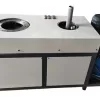
What is a Melt Filter Shrinking Machine ...
11/18/2025 Comments Off on What is a Melt Filter Shrinking Machine and Why is it Essential for Filter Manufacturing?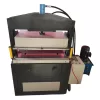
What is a melt filter extruder and ...
11/13/2025 Comments Off on What is a melt filter extruder and how does it enhance your filtration system?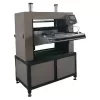
What makes knife pleating machine an indispensable ...
11/11/2025 Comments Off on What makes knife pleating machine an indispensable tool for modern filter materials and textile manufacturing?


